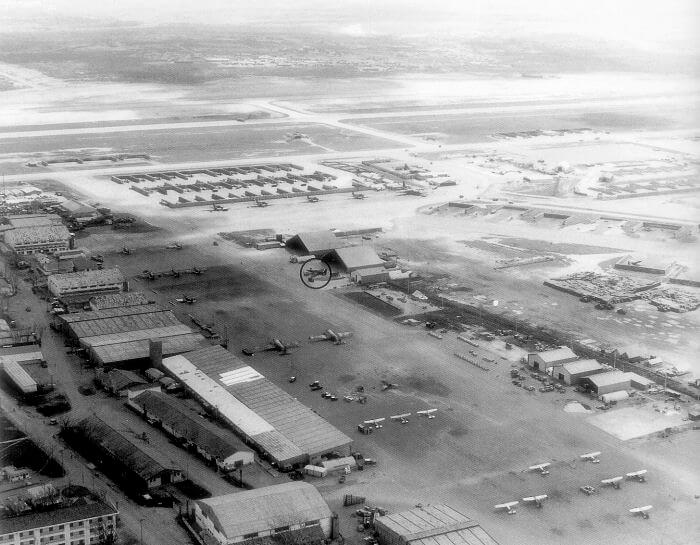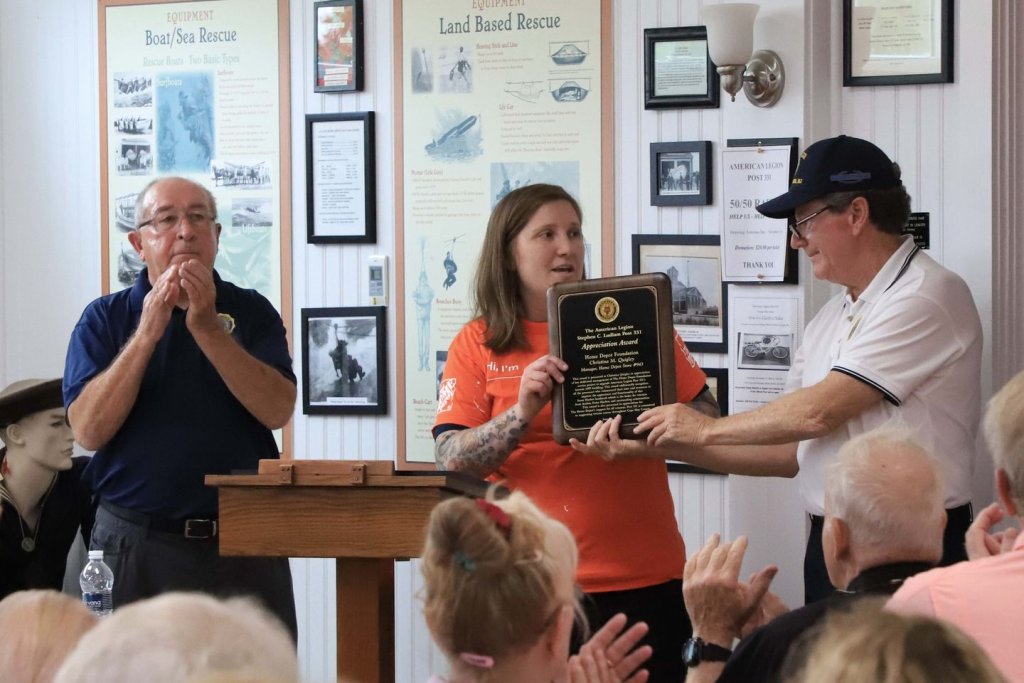As the Vietnam War raged, Jon Ready and his friends looked like members of the Beatles. They had that wispy, bowlish haircut that infatuated so many Americans, and on an average day, you could find Ready at King Pin Lanes bowling alley in West Nyack, New York. He bowled over 100 games a week and often played in money matches and local tournaments.

Ready, now a member of Stone Harbor’s American Legion Post 331, remembers those days well. “So there I was, a 20-year-old in the middle of the Vietnam jungle. Three months before that, I was in a bowling alley! I had no idea how my life would change.”
The year is 1969. Ready thought he missed the draft – he attended Rockland Community College in New York and was set to transfer to a four-year university. In the short gap, while his transfer paperwork was being processed, his draft number was called.
First thing to go was his beloved haircut. The military hairdresser, at an enlisted processing center in New York, asked him what kind of trim he wanted. “I said just a bit off the side, and of course, they took a line straight down the middle,” Ready said with a laugh. “But I was already thinking about survival, so it didn’t bother me as much as it might have otherwise.”
Ready was given a draftee’s most basic assignment: 11B, code for rifle infantryman. He had just a month of free time before his Vietnam shipment date and was nearly certain that he would die. His resigned spirit led him to empty his bank account for a day at the racetrack with his new girlfriend.
His 1969 flight to Vietnam, aboard a civilian Northwest Orient plane, was somber. “It was the quietest flight I’ve ever been on,” he said. “We were all kids in fatigues with M16s. Everybody looked down and wrote letters home until we got there.”
Ready hit the ground at the Bien Hoa Air Base, which is still polluted with Agent Orange even decades after the war. But in 1969, explosions could be heard, and the airspace was bright with artillery fire.

Ready was soon given a bayonet by one of his commanding officers. He remembers his first naive thought: “What the hell am I going to need a bayonet for?”
Then he realized: “We were trained for this, but that was all make-believe. The transition into this new total reality was mind-numbing.”
His first night was spent on perimeter patrol, where he and hundreds of other enlisted soldiers stood 50 steps apart from one another on watch for signs of the enemy. His survival instincts told him to dig a trench to be less visible to the enemy. He figured he would die that night.
“I didn’t sleep all night,” he said. “All I can tell you is there’s something that kicks in when you’re put into that kind of stress and pressure. I was just trying to survive. I did not want to die.”
That motivation deep inside of Ready, to just make it home, led him to make rash decisions, he said. On his first trip to the jungle he figured that proximity to his officer would boost his chances. So he volunteered to carry the radio antennae.
“Well, the officer is probably not going to get killed, so I better stand next to him!” he said he thought. “The officer always has the radio guy next to him. So I volunteered to hold the radio. I was a 20-year-old trying to figure this stuff out on the fly. It didn’t take me long, maybe a couple days, to realize that the enemy wants the communications out, and I’ve got this big-ass antennae on me.”
He then swapped the radio for a tripod-mounted M60.
“It was so heavy,” Ready remembered. “During a firefight you drop it on the ground, and now you have a stationed automatic weapon. Again, it didn’t take me long to realize the enemy wanted to take down the automatic weapon first. I wanted out of that one, too! It’s all stupid stuff now – any one of us could have died – but the choices felt important at the time.”
He did not die in Vietnam, but he sustained a dramatic injury just three months into his tenure. He and other men were sitting atop an armored personnel carrier when they ran over a camouflaged improvised explosive device. In a moment he was cast off the vehicle onto the ground, ripping open a slit at the base of his back.
In a cruel irony, his grave injury was his ticket home. He was evacuated from Vietnam to St. Albans Medical Center in Queens, where he recovered for 12 months. “It was the miracle year of the Mets,” he said. “In the first round of the playoffs before the World Series, I was there in the Vietnam operating room listening to the radio.”
Ready pushed hard to receive 10% of his military salary as part of his medical release, which was upgraded to full pay only after decades of prodding.
He looks back at his time in Vietnam just thankful to have survived. “Back then, we knew we were fighting a good war,” he said. “The government told us that this was what we had to do to protect the United States. And I believed the government, even though I was scared.
“But I see it now as BS. It was a war that did not have to happen. The premise was domino theory, that the communists would get the whole region if Vietnam fell. But I look back now and realize it wasn’t true. It was all about communism. It was pounded into me my whole life.”
Ready has spent almost every summer of his postwar life in Stone Harbor, where he volunteers much of his time at American Legion Post 331. There, he is a project leader and trustee who helps coordinate fundraising efforts for local veterans homes and charities. He said the post gives him a chance to help veterans who might not be as fortunate as he is.

But he still suffers from post-traumatic stress disorder, he said. It took years before he could speak about any of the things that happened to him in Vietnam.
“But still, I remember more of the good things than the bad things,” he said.
More than 50 years later, Ready still has his prized bowling ball from when he was a young man.
“The lanes are synthetic now, the balls are a softer material. Everything has changed since then. It’s all completely different.”
Contact the author, Collin Hall, at chall@cmchearld.com, or by phone at 609-886-8600 ext. 156








